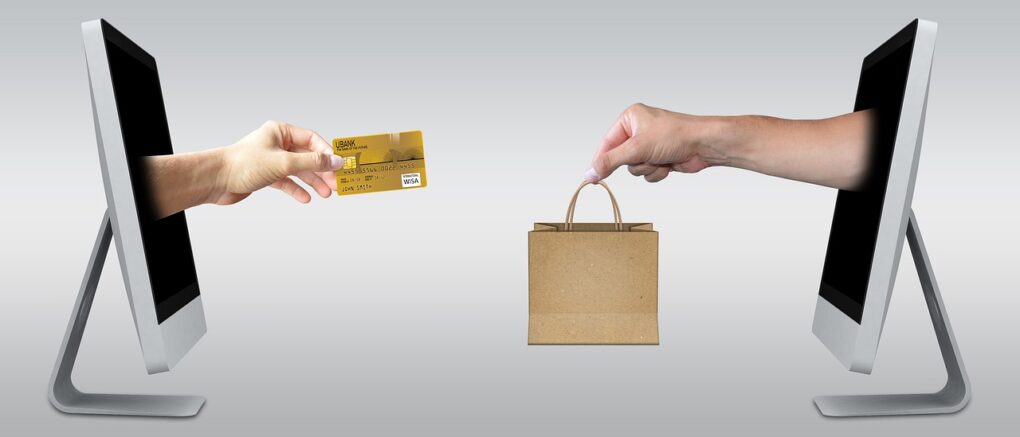In the global market today, most sales transactions take place online. Are you a business owner, are you looking to start a business and make massive sales and profits or are you looking to attract new customers? Then I totally recommend that you have a well-developed e-commerce website. Let’s take a look at what e-commerce development is and the steps involved in creating your own website or mobile application for your business.
What Is E-commerce Development?
According to Wikipedia, e-commerce, also known as electronic commerce, is the activity of electronically buying and selling products on online services or over the internet. E-commerce basically involves the buying and selling of products and services via the internet.
In e-commerce development, it involves creating or building a website or an online platform that is aesthetically pleasing to your target audience to enable them to carry out commercial transactions seamlessly. The following are the functionalities to consider when developing an e-commerce website:
- Website design
- Product catalogue
- Shopping cart and checkout process
- Secure payment gateway integration
- Security and data protection
- Search engine optimization (SEO)
- Mobile responsiveness
- Customer service
- Order fulfillment and shipping.
How To Create An E-commerce Website

It is not recommended that you build your e-commerce website from scratch, unless you are a web developer or intend to use the services of one. There are also various platforms that can help you create an e-commerce website and require minimal technical skills. To build or create your website, you should consider the following steps:
1. Brand establishment
This includes knowing your target audience and ensuring your website meets their needs. Also, you should come up with a business name that represents the goals and objectives of your brand.
2. Buying a domain name
You can also consider getting a domain name in case you are finding it difficult to come up with an eye-catching brand name. A domain name with a good URL creates traffic on your website and boosts sales. You should also ensure that you get your domain names from reliable sources.
3. Website design
Aside from designing your website, it should also portray your business goals and be easy to navigate, as this can enhance sales and boost your brand reputation.
4. E-commerce order fulfillment
You need to adopt a strategy for fulfilling the orders you get and ensure there is a standard delivery time frame for the orders to be fulfilled. This way, your customers will trust your brand to always come through with delivery promptly and they may also recommend you to others.
5. Build and launch your website
You can either create your own website or hire the services of a web developer to help you create one. After the website has been created, it should be tested to see if it is working perfectly and meets the needs of your brand. After confirming that the website is okay, you can then launch it.
6. Website maintenance
You may need to update your e-commerce website regularly based on customers’ feedback and any added features you intend to add to enhance your business.
Who Is An E-commerce Developer?
Ecommerce website developers are responsible for designing, modifying or creating websites and online stores. They provide technical support in developing web pages and frameworks used in building online shopping platforms. These developers ensure that e-commerce websites meet business requirements and also provide a stress-free shopping experience for customers. E-commerce website developers are also responsible for developing the functionalities of a website as listed in the first subtitle above.
Duties Of An E-commerce Developer
Some common duties of an e-commerce developer include:
- Designing and developing custom websites or applications
- Configuring and managing plugins
- Optimizing website speed and performance
- Ensuring website security
- Providing support for website maintenance and updates
- Collaborating with business owners to identify business needs and develop solutions
- Integrating payment gateways for secure online transaction
- Monitoring website to identify areas for improvement
How To Choose The Right E-commerce Developer
Choosing the right e-commerce developer is a very important aspect of the success of your business. Communication is key when working with an e-commerce developer, as this can enable a smoother and more efficient process. It is best to hire a developer who is experienced in web design or e-commerce development for a better user experience on your website.
Here are some points to consider when choosing an e-commerce developer:
1. Know your requirements
You need to access and clearly define your business goals, objectives and budget before you hire an e-commerce developer. This should also include your desired functions, like the aesthetics of your website, your target audience and the project timeline.
2. Look for experience and expertise
Before hiring an e-commerce developer, ensure that they are good at what they do. You can review similar projects that they have done in the past, check their track record of success and also read their client reviews. Also, check their areas of specialization.
3. Evaluate communication and collaboration
Effective communication and collaboration are vital for the success of the e-commerce development project. In choosing an e-commerce developer, ensure they are transparent and are able to understand your brand’s goals and objectives. They should also keep you up to date on progress made as they embark on the project. On your part, you should be open to their ideas and suggestions.
4. Discuss your budget
You need to talk about your budget upfront to ensure that it aligns with the web developer’s rates. You could get proposals from different developers, then compare costs and choose the one that suits your budget.
5. Trust your instincts
You should also trust your instincts when choosing an e-commerce developer. From your options, you should select a developer who has your best interest and wants to see your brand’s goals and objectives come to light. Also, ensure that they possess the necessary skills required for the job.
Qualities Of A Good E-commerce Website
A good e-commerce website will have several key features that will make it stand out from others. These features include:
- Excellent user interface (UI) and user experience (UX) design: a good e-commerce website will possess a design that is easy to navigate and for customers to get what they are searching for.
- Mobile device compatibility: an e-commerce website should be compatible with mobile devices like smartphones, tablets and even desktops.
- Effective search filter: this helps customers navigate the website easily based on specific product categories or prices
- Good online security: the security of your website is very important because you are handling customers’ sensitive data, including their credit card details and addresses.
- Effective customer service: a good e-commerce website should ensure that their customer service is top-notch. They should give timely responses to customer’s complaints or inquiries and provide adequate feedback.
Benefits Of E-commerce Website
E-commerce website is of great advantage to both businesses and customers. Here are some of the benefits:
- Cost reduction
- Global visibility
- Flexible payment options
- Scalability
- Good customer experience
- Increased sales and profit
- Highly convenient
- Personalized shopping experience
- Products and price comparisons
- Faster buying process
In conclusion, e-commerce development plays a vital role in promoting and developing a successful business. In the world today, where technological advancement is rapidly evolving, it is of great importance for businesses to be innovative and meet the needs of their customers so that they can thrive in the highly competitive e-commerce industry.
